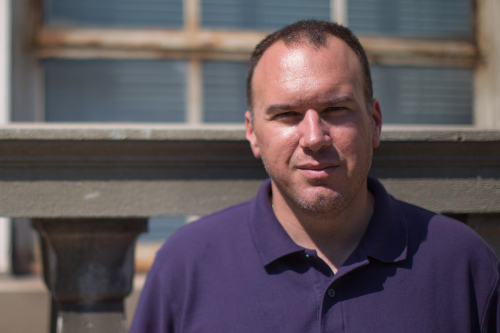Profile
LinkedIn Profile:
https://www.linkedin.com/in/timothy-p-bender-1b800261/
Biography.
Since his appointment in 2006, Prof. Bender’s laboratory has focused on the design, synthesis and engineering of new materials for application in organic electronic devices including organic photovoltaics (OPVs) and organic light emitting diodes (OLEDs). His focus has been on two distinctly different classes of materials. The first is the development of the chemistry, crystal engineering and application of boron subphthalocyanines (BsubPcs). The second is the design and application of soft or liquid triarylamines. Permeating through each research stream is an interest in developing and studying polymeric versions of each class of material.
His research contributions span from fundamental aspects of chemistry, to applied chemistry to physical chemistry and to the study of basic optoelectronic properties of organic electronic materials within organic electronic devices. Since his appointment at the University of Toronto he has published ~65 papers (to date) largely in peer reviewed high impact journals. He has active collaborations with a number of academic and industrial partners including Prof Tim Jones (Warwick, UK), Prof Neal Armstrong (Arizona, USA), SABIC Corporation, Siltech Corporation, Xerox Corporation, and others.
Professor Bender is cross-appointed to the Departments of Chemistry and Materials Science and Engineering at the University of Toronto. He also serves on several internal and external committees including the chair of the steering committee of the Institute for Sustainable Energy. Professor Bender also has been recognized as a talented classroom instructor, having won the 2008 Professor Diran Basmadjian Teacher of the Year Award from the Department of Chemical Engineering and Applied Chemistry after teaching his first class ever at the University of Toronto.
His research program at the University of Toronto is in part an extension of his independent research carried out while being a member of the research staff of Xerox Research Centre of Canada (2000 – 2006). During that time he was issued 60 US patents and published 5 peer reviewed articles primarily in the field of organic electronic materials with a focus on OLEDs and organic photoreceptors – the heart of a modern xerographic print engine. His inventions include novel blue-wavelength photoresponsive materials and a sol-gel based hole-transporting material the latter of which was taken to commercial production an enabled the photoreceptor to be a so called ‘life of machine’ part. He collaborated with colleagues in Japan and the Netherlands on the implementation of this technology and received a Corporate Special Recognition Award for his efforts. During that time he also chaired a committee reporting to the CTO on the impact of nanotechnology on Xerox Corporation and their business.
Professor Bender obtained his Ph.D. in Chemistry from Carleton University under the supervision of Professor Wayne Z.Y. Wang in 1999. His thesis was entitled “Linear, dendritic and hyperbranched polyimides; The tetrahydro[5]helicene unit as a novel building block for an exercise in macromolecular architecture.” For this, Professor Bender won the Macromolecular Science and Engineering Division (MSED) of the Chemical Institute of Canada (CIC)/Bayer Inc. Graduate Student Doctoral Thesis Competition for top Ph.D. thesis in macromolecular science in Canada.
Expertise, Interests and Activities.
- Organic electronic materials and devices including molecular design and device engineering.
- Advanced and basic polymeric materials and components.
- Applied organic, polymer, physical and analytical chemistry.
- Chemical reaction engineering and chemical process optimization.
- Principles of nanotechnology as applied to materials science, chemistry and chemical engineering.
- Broad research interests spanning from fundamental to applied.
- Research activities aiming at ultimate commercialization.
- Supervision and mentoring of undergraduate and graduate level students.
- Undergraduate and graduate level lecturing and teaching.
- Formation collaborative relationships with industrial, government and university partners.
- Research and project management.
- Record of both peer reviewed publications and international patent protection of research.
